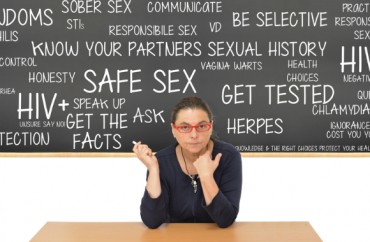
When it comes to evaluating the claims of people who say they were sexually assaulted, our usual respect for the legal system and its checks and balances goes out the window.
This was painfully clear last year when a student sued the University of Oregon for allegedly facilitating her rape by recruiting a basketball player who had been previously accused of rape.
When the school accessed her counseling records from the campus health center – which were directly relevant to her legal claims of emotional distress – her legal team and counselor (not to mention activists) made a huge stink, claiming the school violated federal privacy law and was somehow re-victimizing someone who was suing it.
Needless to say, actual legal experts were dubious. You’re suing someone. You don’t get to hide everything that makes you look bad.
The Forces of Credulous Accusation are at it again, trying to shame Virginia Wesleyan College into buying off an accuser with a lucrative settlement rather than defending itself against her lawsuit.
The school’s lawyers took the unusual step last week of issuing a press release to defend the college against “inaccurate or misleading stories” (probably including this sensationalist Huffington Post story) about its defense in the case, including its investigation of the accusing student’s sexual history.
Like the UO case, those details were completely relevant to Jane Doe’s allegations that the school facilitated her alleged rape through its negligence – in this case, claiming a student peer adviser “provided her possibly-drugged alcohol on the night she was assaulted by another male classmate,” as HuffPo said.
Doe, whose story has already changed about how she got to her alleged rapist’s room, is asking for $10 million in damages, by the way.
The school isn’t trying to show that Doe “is of unchaste character,” the law firm said:
As the College’s recent court filing indicates, the basis for the request was that Jane Doe has made various claims for monetary damages related in part to her failed relationships. We want to make sure we have properly evaluated these claims. Jane Doe’s attorneys have agreed the College is entitled to discovery of Jane Doe’s claimed damages, and the parties are currently working together to resolve this issue.
Echoing testimony recently provided to a U.S. Senate committee on how rape accusers sometimes share selective information about their cases to isolate and harass the students they accuse – who are not allowed to respond – the law firm said Doe “was using discovery documents to influence the media and public.”
To demonstrate it has no interest in stigmatizing Doe, who inexplicably fought the effort, the school
obtained a protective order from the court that prevents the sharing of discovery documents with third-parties having no interest in the lawsuit. This protective order prevents the sharing of Jane Doe’s responses to the requested discovery. We do not wish to harass or embarrass Jane Doe or any members of the College community, and we certainly don’t want to prolong this matter.
Doe is claiming the alleged rape made her “unable to maintain relationships because she is now unable to desire sex,” according to the Washington Examiner‘s Ashe Schow – so her post-incident relationships might reveal something about her credibility:
VWC learned from a medical exam Doe had two weeks after the alleged incident that she had another sexual encounter 10 days after she claimed to be attacked. VWC is seeking the name of this individual and any other sexual partners to discover whether Doe really was as averse to sex as she claims in the lawsuit.
The school also “claims to have information that contradicts” Doe’s claim in her hearing that “she was a virgin prior to the alleged assault,” Schow says:
VWC suggests that if Doe lied about this during her hearing, it would call her credibility into question and raise the possibility that the hearing board would have come to a different conclusion, had they known she had provided false testimony.
Doe and her attorneys may not like it, but a legal defense often involves questioning an accuser’s credibility.
She dragged her school into this incident by insisting it was responsible for a terrible violation of her body and the ruining of her subsequent relationships.
In the absence of any other evidence it can muster in its defense – it’s not spying on private college parties, even if a peer adviser is there – the college has every right to obtain evidence that goes to the core of the plaintiff’s claims.
RELATED: Rape accuser misuses federal privacy law to stop school from defending itself
Like The College Fix on Facebook / Follow us on Twitter
IMAGE: Shutterstock






Please join the conversation about our stories on Facebook, Twitter, Instagram, Reddit, MeWe, Rumble, Gab, Minds and Gettr.